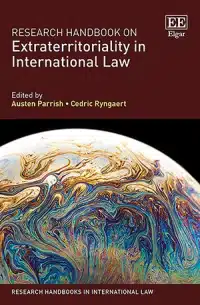Happy New Year!
TLB will be on winter break until January 9, 2024. We wish you all the best in the new year!
Continue ReadingTop 10 Posts of 2023
Many of our most popular pages in 2023 were our topic pages and primers, as we highlighted yesterday. We are grateful that our library of resources is proving useful to you, our readers. Beyond that evergreen content, here is a count-down of our 10 most-read posts of 2023: 10. Second Circuit Rejects Consent-Based Jurisdiction over…
Continue ReadingTLB in 2023
We at TLB are grateful for both the breadth and the depth of engagement by you, our readers. Here is our year at TLB by the numbers:
Continue ReadingCert Sought to Resolve Circuit Split on Anti-Suit Injunction Standard
The Supreme Court will consider a petition for cert to resolve a circuit split over when to issue antisuit injunctions.
Continue ReadingEvergreen Content at TLB
In addition to covering new developments in transnational litigation, TLB aims to provide evergreen content that can serve as resources for practitioners, students, and academics. Our topic pages include primers on recurrent issues in transnational litigation; collections of core primary legal sources and leading academic articles; and related TLB news coverage. We are excited to…
Continue ReadingEighth Circuit Weighing Adoption of Foreign Relations Abstention
The Eighth Circuit will soon hear an interlocutory appeal to consider permitting abstention based on foreign relations concerns. In Reid v. Doe Run Resources Corp. (as the case is captioned on appeal), Peruvian citizens allege they were seriously harmed as children by toxic substances emitted by a metallurgical refining complex in Peru and that this…
Continue ReadingSupreme Court Requests Response to FNC Cert Petition
The Supreme Court has called for a response in Wamai v. Industrial Bank of Korea, a terrorism-related lawsuit that was dismissed for forum non conveniens. The plaintiffs have asked the Court to consider how much deference federal courts should give U.S. plaintiffs’ choice of forum when they are joined by foreign co-plaintiffs. The Southern District…
Continue ReadingImportant New Handbook on Extraterritoriality
Many TLB readers will share my excitement and appreciation for the brand-new Research Handbook on Extraterritoriality in International Law, a volume of wide-ranging expert analyses edited by Austen Parrish and Cedric Ryngaert. The volume explores extraterritoriality from a full range of perspectives rarely (if ever) brought together in one place. I am reading it cover-to-cover…
Continue ReadingTLB’s Petitions to Watch at the Long Conference
Today the justices of the U.S. Supreme Court gather for their first conference before the official beginning of October Term 2023—what is colloquially known as the “long conference” because of the long list of petitions for certiorari on their agenda. We can expect an orders list within the next day or two with additional grants…
Continue ReadingCert Petition Defends Partial Forum Non Conveniens Dismissals
A pending cert petition before the U.S. Supreme Court asks whether a district court may dismiss part of an action pursuant to the doctrine of forum non conveniens (“FNC”) while allowing the rest of the case to proceed. The Tenth Circuit held that it could not in DIRTT Environmental Solutions Inc. v. Falkbuilt Ltd. because…
Continue Reading







